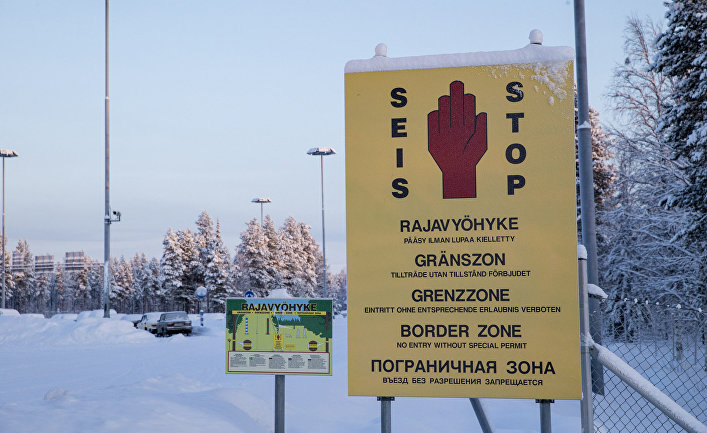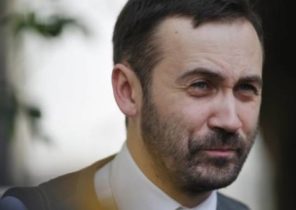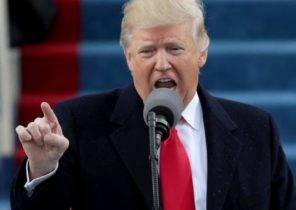
Russia is acting more menacing. It seeks to influence the internal politics of not only neighboring countries but also the United States. We should remember the lessons from history and to take the right steps. Wise words, 110 years ago pronounced the American President, can be the key to solving the problem.
25 years ago there was every reason to hope that post-Soviet Russia become part of Europe. But as far as the first post-Communist leader Boris Yeltsin became popular in the West, as much despised him at home. Yeltsin was painful proof of Russia’s weakness.
Just as the German Empire after the defeat in the First world war until reparations plunged people into poverty, went on a revenge path, and after the defeat of Russia in the cold war took a course of revenge under the leadership of Vladimir Putin.
Before Christmas Gunnar Carlson (Gunnar Karlson), head of military intelligence of Sweden, said in the transmission on TV channel SVT that Russia “poses a serious threat, because it strikes at the foundations of democracy with guns in hand. And cyber attacks can seriously damage society.”
In their reports SAPO, the security Police of Sweden, writes that “Russia intends to influence political decisions and public opinion — and not just in Sweden. This influence can assist, supporting extreme political movements, as well as taking the information and misinformation campaigns.”
A similar warning comes from other sources such as Foreign policy Institute in Helsinki, the intelligence services of Estonia, Latvia and Lithuania, the Czech security and information service, the British MI-5 and MI-6 and the German Federal protection service of the Constitution.
But what are Russia’s motives and why she is now beginning to use these methods? The answer gives the left Politico magazine: “Putin with fear watched as Hillary Clinton, then US Secretary of state, intervened in Russian elections 2012 and openly supported the opposition of Putin.”
This was done, inter alia, with the help of monetary aid to opposition organizations. From the point of view of the West to give money to organizations fighting for civil rights, legally. But the regime saw this as a hostile interference in the internal Affairs of Russia.
If the West can interfere in Russian elections, why would Russia not to interfere in democratic elections in Western countries?
We, the people of the Western world, considering our actions as a commitment to support universal values of civil rights, but not the way it sees Russia and other authoritarian regimes.
The fact that in the first place in Europe became known as “soft power”, i.e. measures in favour of civil rights, is regarded as a hostile action by those countries that these measures have been. In this sense, for them, our “soft power” is almost as aggressive as the bombing of George Bush, Saddam Hussein, made with the help of “tough” leverage the United States.
Such different points of view cause uncertainties. What the West considers peaceful means, in other countries, such as Russia, can be seen as something not peaceful.
If the Russian regime believes that our actions are not peaceful, and hostile, we need to understand and proceed from that understanding. And no matter how much we will criticize the cases of undemocratic power.
If you ask me whether we should take Russia and other countries managed by authoritarian methods, as is, of course, I answer “no”. But the real question is whether we can interpret soft power as we, the representatives of the West”, believe just, still remains open.
If we believe that it is possible to legitimize interference in the internal Affairs of other countries, other countries it gives you the opportunity to claim their same right to interfere in our internal Affairs, say, in elections.
We, of course, seems wrong, because we want not to impair, but to improve the situation in these States. But if the regimes of these countries see in our intervention serious threat to the stability of their power, we must state the fact that our views are seen as a threat and reason for the response.
Politico emphasizes that Russia has a great need for revenge. The extension of the scope of interests of the Western countries to Eastern European countries, formerly part of the sphere of interests of the Soviet Union, not hurt Russia’s security, but hurt her pride.
To achieve peace and security, we need to realize what you are doing. To continue to hurt this pride, as it was with Germany after the First world war — can be incredibly dangerous. Although we, the West, and will continue to defend civil rights, rule of law, pluralism and democracy, we can’t forcibly push their morality to others and hope that we will be grateful for it.
Full respect for national independence should be observed before giving advice and recommendations.
And, as always, it is better to start with yourself. If we ourselves will not respect and do not create armed forces to protect our social system, how can we expect respect from others?
Sweden, Scandinavia and all of Europe needs to strengthen its ability to protect security in the military sphere, so in the other. With a new strong position it will be possible to start a respectful dialogue with those who is not (yet) a democratic way. Then we can achieve peace and security, without ceasing to fight for civil rights around the world.
Great wisdom lies in the words of President Theodore Roosevelt’s diplomacy and security policy, spoken to them in 1901: “Speak softly, but carry a big stick.”
Sweden and others are now almost exactly the opposite: acting from a position of superiority, while reducing its military capabilities. Stupid arrogance only undermines security.







